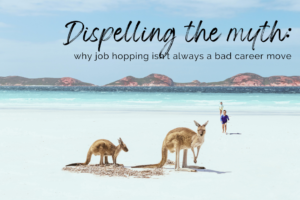|
|
Does your future include becoming a freelancer? It’s very likely!
“By 2027, a majority of American workers won’t be traditional employees. And with the decline of the traditional employment model, benefits like health care, sick leave, and pensions will largely become a thing of the past. Freelancers are ahead of that curve…in building the new safety net.”
Rafael Espinal, President & Executive Director of Freelancers Union
Last week, I asked my readers to share with me how COVID-19 has changed their career plan for the better. I received two stories from freelancers thriving in the fitness industry, one of the hardest hit industries during COVID.
Freelancer Story #1
A former client emailed me to say he’s used his time during COVID to make some necessary and helpful changes to his fitness and health business. John used the personal branding methods I taught him, along with my model for virtual courses, to create online classes for his own clients. This has opened up a whole new way to reach people he wasn’t able to work with in person.
He’s recently introduced a six-part course on helping you develop mindful eating habits to find peace with food and weight loss. Check out his site at JohnHolley.com.
Freelancer Story #2
Seth and Megan are a married couple I first met when they were both working in the music industry. Seth was a touring musician, so he was already a freelancer. Megan had more traditional employment in the music industry. They both started their fitness business as a side hustle in 2017. But 2020 forced them to go full-time with it.
“Seth and I started Fitness Porter on the side with the goal of eventually transitioning it into our full-time income. But we recognized that when we only put part-time hours into it, growth was extremely slow!
“In late 2019, Seth decided to come off the road. At the time, Fitness Porter wasn’t making enough to support our family, so Seth started personal training at a gym. A few months later the pandemic hit, and the gyms closed.
“With the gyms closed, we enjoyed spending a majority of our time working on growing our business, which gave us momentum. At some point, we had the insane idea of letting go of our steady income and going ‘all-in’ on our business. It didn’t take us long to make the decision to let go of the financial security of a salaried job. We both agreed it was the right thing to do. We wanted to continue with the momentum the pandemic provided us.
“Our plan to grow our business is still evolving. We’re still working hard and leaning into the many hats it takes to be an entrepreneur. If it wasn’t for COVID, we would’ve never tasted what it’s like to work a business full-time. We wouldn’t have seen the results, and we wouldn’t have been brave enough to take the financial risk.
“Since COVID, we’ve had a significant increase in clients, and we’re diving deep into new areas of growth.”
Key take-aways
The key take-aways from these stories are important to remember.
1. Prepare for the future
As you can see from Espinal’s quote above, freelancing is not just a major trend, but a cultural shift in the workforce.
I have a dear colleague and friend who has dreams of freelancing. Her husband already freelances. Because of this, she feels it’s wise for her to stay in her current job with healthcare benefits instead of going out on her own.
But what happens if her employer decides in the next six years to stop providing benefits? Will it finally open a door for her she wasn’t able to open herself? More importantly, will she look back and wish she’d started investing full-time into her freelance business sooner? Luckily, she’s already started freelancing on the side. But like Seth and Megan, she won’t see full income results until she either decides, or is forced, to go full-time with her side-hustle.
One day, you may find yourself working as your own boss and paying for your own benefits, even if you never planned to. There is no one right way to make this career shift. But wouldn’t you want to be prepared? Now is the time to start thinking about what this will look like for you, and how you should pivot when the time comes. paNASH can help you with this.
2. Get on the same page
If you’re married, make sure you and your spouse are in agreement with your career plans, because your decisions affect them too.
Even if you don’t plan to start a business together, you’re going to need your spouse’s support, especially in the beginning when business is slow.
3. Know what to expect
As Megan said, there are many hats a freelancer and entrepreneur must wear. You don’t have to have a business degree to start your own business. But you also must understand this: a skill does not a business make.
Along with the service or product you’re skilled to offer, you have to have some basic skills to market your business and to manage the financials of it. These can all be learned as long as you maintain flexibility, discipline, and a teachable spirit. Just don’t let the learning curve of running a business intimidate you.
4. Don’t let fear intimidate you
I’ve been there. I know how scary it is to take the leap of starting your own business. I left my full-time job with benefits in August of 2008, right before the Great Recession hit. If I hadn’t left then, I would’ve been too afraid to leave my job once the crisis hit.
But I didn’t let fear or the the lack of experience running my own business intimidate me. Instead, I learned from various sources what I needed to know as I went along.
Having been through this career pivot myself, I’ve been able to teach my clients what I’ve learned. As a result, I’ve saved them a little time and energy in starting their own thing. I can help you do the same.
5. Make your product or services accessible
Like John, there may be a time when you have to shift how you deliver your product and services so they’re accessible to current and future clients. This is where your creativity comes in.
Look at what others are doing to see what works. Determine how you can tweak it to your own brand. If a necessary shift requires a re-brand, paNASH can help! We can walk you through the same branding process we taught John.
This service is useful for anyone having to make a career change, even if they’re not starting their own business, but just changing jobs or industries. Whether you work for yourself or not, your skill set is your product, and you need to make it as accessible for as many opportunities as possible to continue making a living.
Need help?
If you need help preparing for the future of your career, figuring out how to become a freelancer, or re-branding your skill set, email me. I’m happy to schedule a complimentary initial consultation with you!
Related posts
- Are You Prepared to Be a Freelancer If Forced To?
- Why You Need to Think Like an Entrepreneur (Even When You’re Not One)
- How to Plot Your Escape From the Golden Handcuffs
- How to Make the Risk of Starting Your Own Business Doable
- 10 Lessons I’ve Learned From 10 Years of Freelancing
- 5 Common Fears (and Myths) of Quitting a Job You Hate






